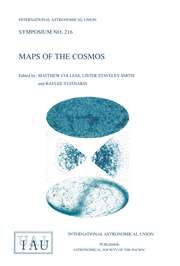Article contents
Fermi Question, Fermi Paradox: One Hit, One Out
Published online by Cambridge University Press: 04 August 2017
Abstract
Our understanding of the universe and the history of life on Earth suggests we may not be alone in the Galaxy. Today we are ignorant of where “they” are, if they are, as was Fermi when he asked, “Where are they?” Many scientists believe the way to seek for answers is to search for “their” radiated signature. (Hence SETI, now.) But some have argued persistently that since they are not here, they are not out there, and a few insist the situation is paradoxical. This note samples speculations supporting this view and concludes one cannot make a worthy paradox from absent evidence, a belief that interstellar travel will soon be a cinch, and a willingness to predict the distant future of intelligent species.
- Type
- Section VII. The Fermi Paradox and Alternative Search Strategies
- Information
- Copyright
- Copyright © Reidel 1985
References
- 3
- Cited by




